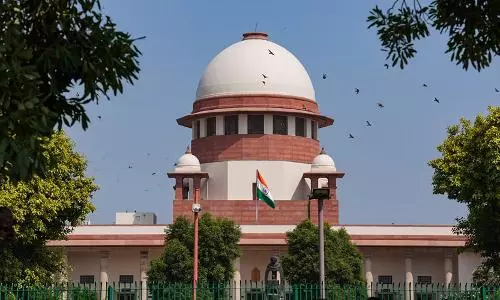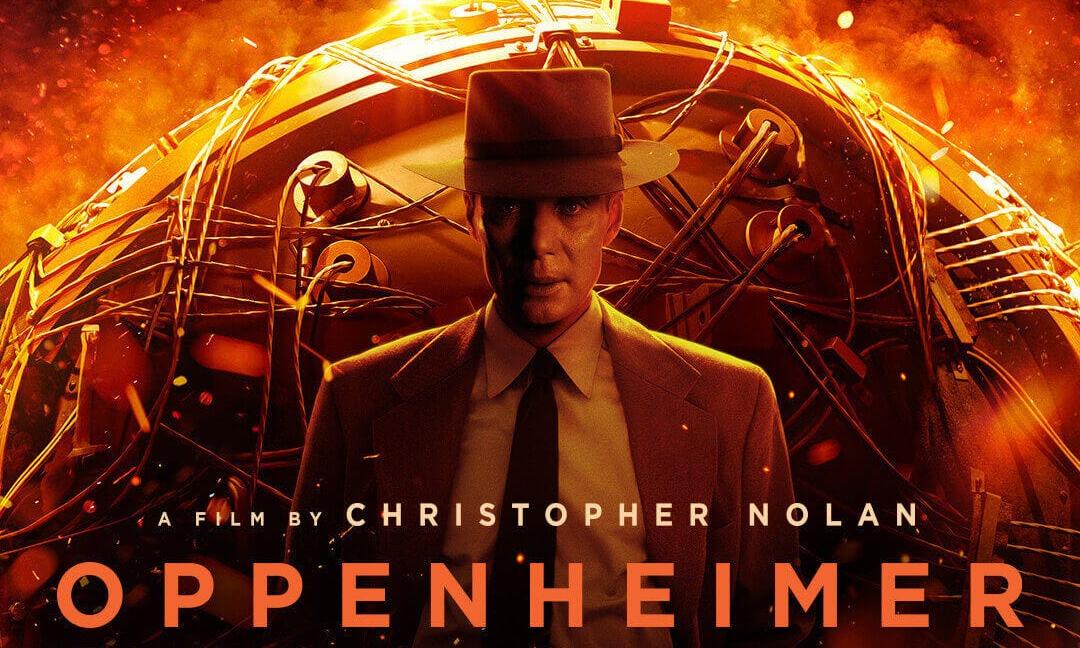
Oppenheimer: Row over Bhagavad Gita in intimate scene, Hindu groups cry attack on religion
text_fieldsLos Angeles: Christopher Nolan's 'Oppenheimer', the biopic of Robert Oppenheimer, who was the mind behind the world's first atomic bomb, released on Friday. The film which passed with a U/A certificate by India’s Central Board of Film Certification, stars Cillian Murphy and opened to great reviews.
It also features an intimate scene between Cillian Murphy as Robert Oppenheimer and Florence Pugh as Jean Tatlock, reports Variety, during which Pugh gets up and goes over to the bookshelf, picks out a copy of the Hindu holy scripture Bhagavad Gita and asks Murphy to read from it.
This has not gone down well with the Indian movie-goers.
Murphy reads the line “I am become Death, destroyer of worlds,” the quote from the Bhagavad Gita that Oppenheimer famously thought of when the first nuclear bomb was detonated, reports Variety.
"One is perplexed as to how the Central Board of Film Certification (CBFC) could approve the movie with this scene," said Uday Mahurkar, Information Commissioner with the government of India, who is also the founder of the Save Culture Save India Foundation.
The 700-verse Bhagavad Gita is a part of the Indian epic Mahabharata and consists of a dialogue on a battlefield between Arjuna and Lord Krishna as the former undergoes a moral dilemma.
 Also Read:Directing James Bond movies will be a privilege but needs right attitude: Christopher Nolan
Also Read:Directing James Bond movies will be a privilege but needs right attitude: Christopher Nolan
In a letter addressed to Nolan on Twitter, Mahurkar wrote, “It has come to our notice that the movie ‘Oppenheimer’ contains a scene which makes a scathing attack on Hinduism. As per social media reports, a scene in the movie shows a woman making a man read Bhagwad Geeta aloud while getting over him and doing sexual intercourse”.
“She is holding Bhagwad Geeta in one hand, and the other hand seems to be adjusting the position of their reproductive organs. The Bhagwad Geeta is one of the most revered scriptures of Hinduism. Geeta has been the inspiration for countless sanyasis, brahmacharis and legends who live a life of self-control and perform selfless noble deeds”, he wrote.
“We do not know the motivation and logic behind this unnecessary scene on life of a scientist. But this is a direct assault on religious beliefs of a billion tolerant Hindus, rather it amounts to waging a war on the Hindu community and almost appears to be part of a larger conspiracy by anti-Hindu forces”, Mahurkar wrote.
The letter goes on to say that Hollywood “is very sensitive about the fact that Quran and Islam is not depicted in any manner that may offend the value system of a common Muslim, even if you make something based on Islamist terrorism,” and asks, “Why should not the same courtesy be also extended to Hindus?”
The letter urged Nolan to “remove this scene from your film across the world” and added, “Should you choose to ignore this appeal it would be deemed as a deliberate assault on Indian civilisation.”
Indians went in big numbers to watch Oppenheimer and protests began on social media almost immediately after. Following protests from Hindu groups, Warner Bros. edited out the lines from the soundtrack.
This is not the first time a quote from the Bhagavad Gita has been used in a Hollywood studio picture.
According to Variety, Stanley Kubrick’s 1999 film “Eyes Wide Shut” featured an intimate scene which had the lines “For the protection of the virtuous, for the destruction of evil and for the firm establishment of Dharma, I take birth and am incarnated on Earth, from age to age.”
Oppenheimer is the first movie directed by Christopher Nolan to have an R-rating. But India's censor board gave the film a U/A rating after the studio cut some shots of the intimate scene to reduce its length.
According to reports, the cuts were made by the studio themselves because they did not think the censor board would allow the scene.
 Also Read:Suriya shares ‘Kanguva’ first glimpse on his 48th birthday
Also Read:Suriya shares ‘Kanguva’ first glimpse on his 48th birthday























